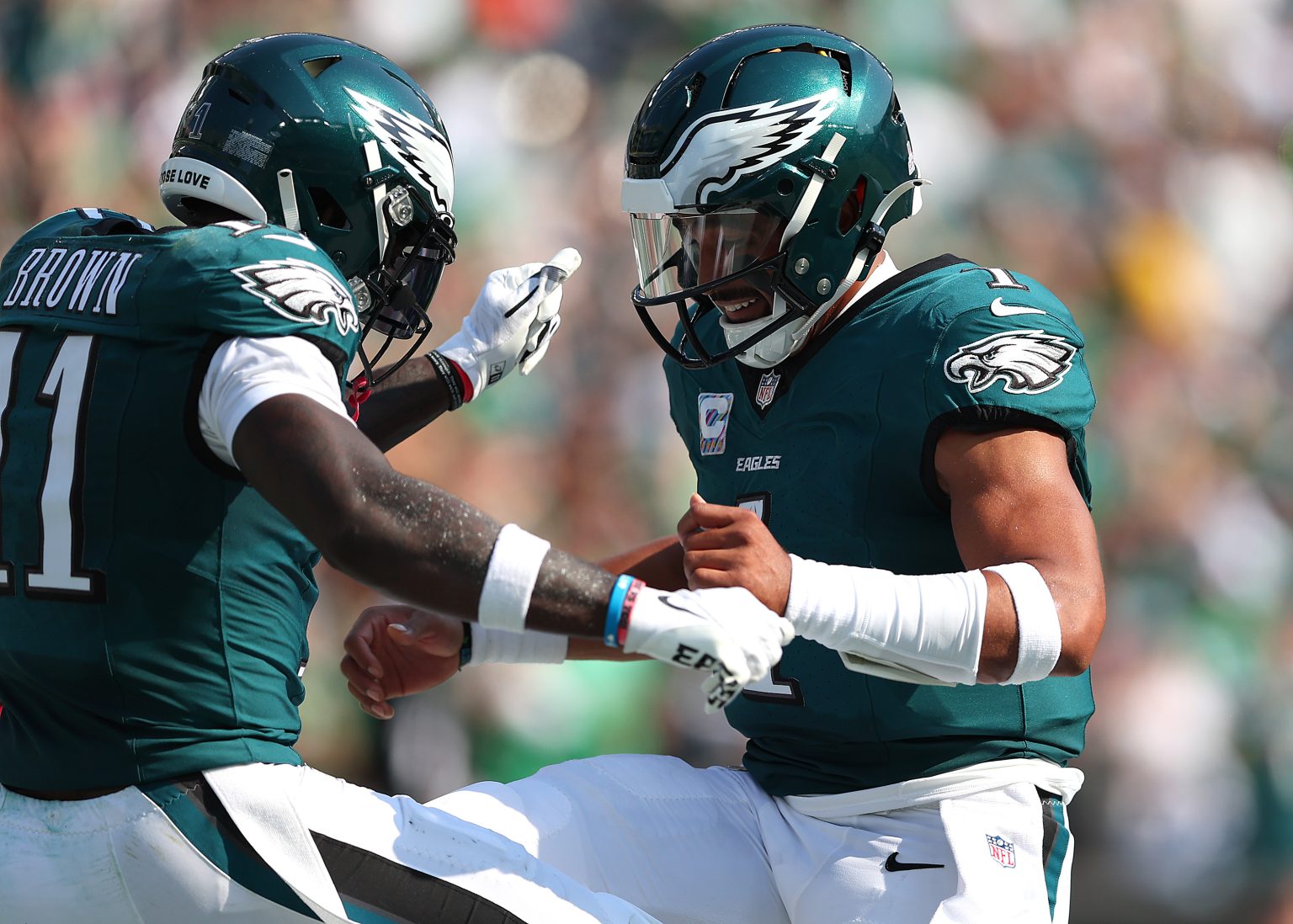The Philadelphia Eagles, despite their impressive nine-game winning streak and their position as strong contenders for a deep playoff run, have recently navigated a minor internal squall stemming from public comments about the team’s offensive strategy. The incident began after a hard-fought victory against the Carolina Panthers, when star wide receiver A.J. Brown expressed his desire for the team to improve its passing game. Brown’s remarks, while seemingly innocuous, were quickly interpreted by some as veiled criticism of quarterback Jalen Hurts, sparking rumors of a rift between the two offensive cornerstones.
Defensive end Brandon Graham inadvertently fanned the flames of speculation during a local radio interview. His comments, which hinted at a shift in the dynamic between Hurts and Brown, seemed to confirm the narrative of a brewing conflict. Graham’s acknowledgement that “things have changed” between the two players, while also emphasizing the importance of separating personal matters from business, only served to amplify the perceived tension within the team. His attempt to address the situation, however well-intentioned, ultimately contributed to the growing public perception of discord within the Eagles’ locker room.
The subsequent clarification from both Brown and Hurts aimed to quell the burgeoning controversy. Brown insisted that his initial comments were misinterpreted and that his focus was on the overall improvement of the passing attack, not a critique of Hurts’ performance. Hurts, for his part, offered a succinct and reassuring “We’re good,” seemingly putting the matter to rest. Despite these efforts to clarify the situation, the episode underscores the potential for miscommunication and the rapid escalation of narratives in the high-pressure environment of professional sports.
The incident drew commentary from NFL Hall of Famer and media personality Michael Strahan, who offered a broader perspective on Brown’s perceived frustration. Strahan emphasized the importance of addressing internal concerns within the team, rather than airing them publicly. He pointed to the Eagles’ winning streak as evidence of their effective strategy, even if it didn’t always maximize individual statistics. He drew a parallel with Saquon Barkley, whose record-setting season with the Giants demonstrated the effectiveness of a run-heavy offense. Strahan’s analysis suggested that Brown, while undoubtedly a talented receiver, needed to prioritize the team’s success over individual accolades. He cautioned against letting “ego of numbers and stats get in the way of what the team is doing.”
This mini-drama within the Eagles’ organization serves as a microcosm of the complexities and pressures inherent in professional sports. While the players involved quickly moved to address and resolve the perceived conflict, the incident highlights the challenges of balancing individual aspirations with team goals. Brown’s desire for greater involvement in the passing game is understandable, given his skillset and competitive drive. However, the team’s success, built on a strong running game and a robust defense, suggests that the current strategy is effective, even if it doesn’t always cater to individual statistical achievements.
Ultimately, the Eagles’ ability to overcome this minor internal distraction and maintain their focus on the broader goals of the season will be a testament to their resilience and team unity. The incident, while potentially disruptive, also offers a valuable lesson in communication and the importance of prioritizing collective success over individual ambitions. With the playoffs looming, the Eagles will need to maintain their strong camaraderie and on-field execution if they are to fulfill their potential and achieve a deep postseason run. The episode serves as a reminder that even in the midst of a winning streak, internal dynamics and public perception can create challenges that require careful navigation and a commitment to team unity.

